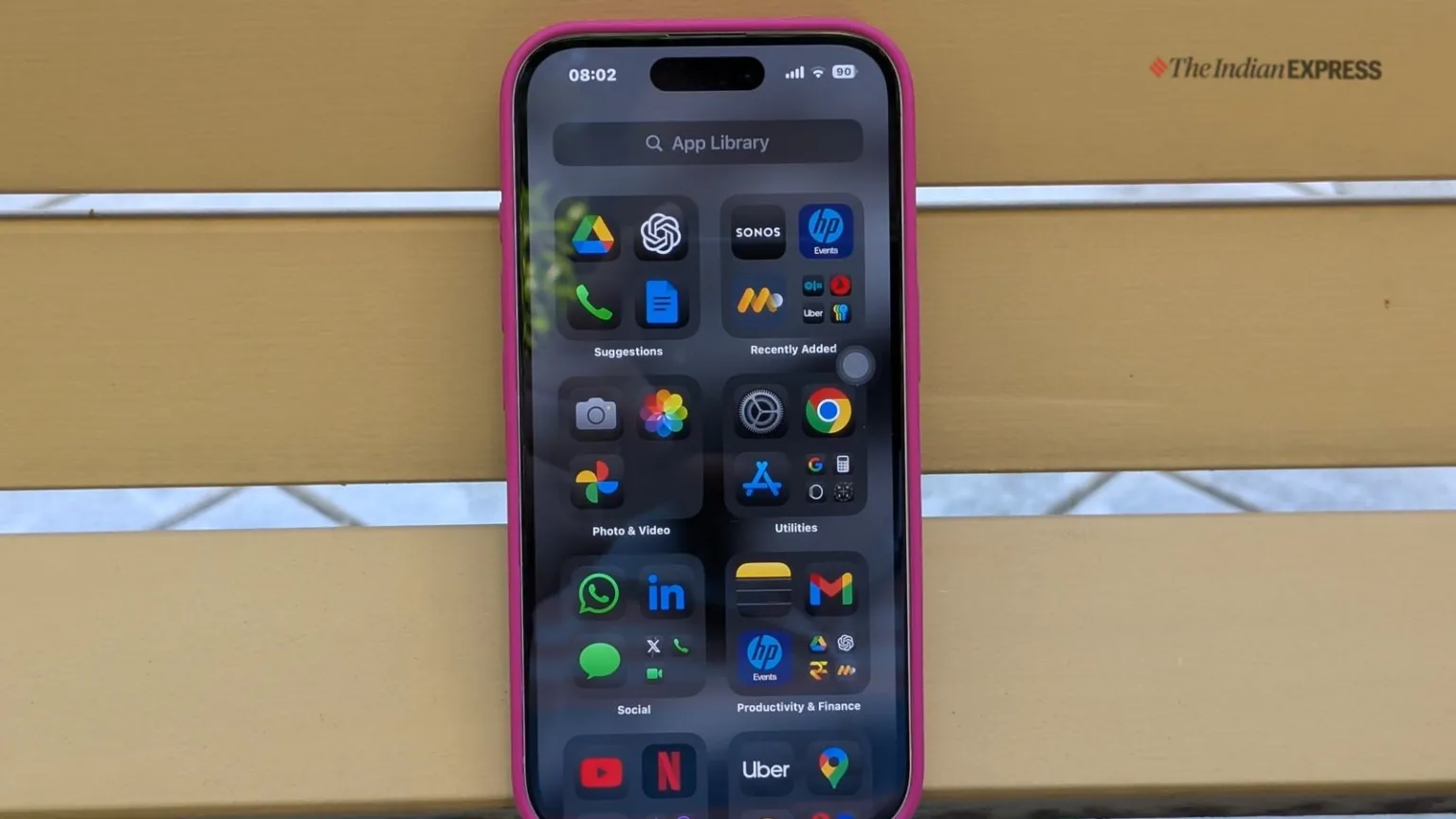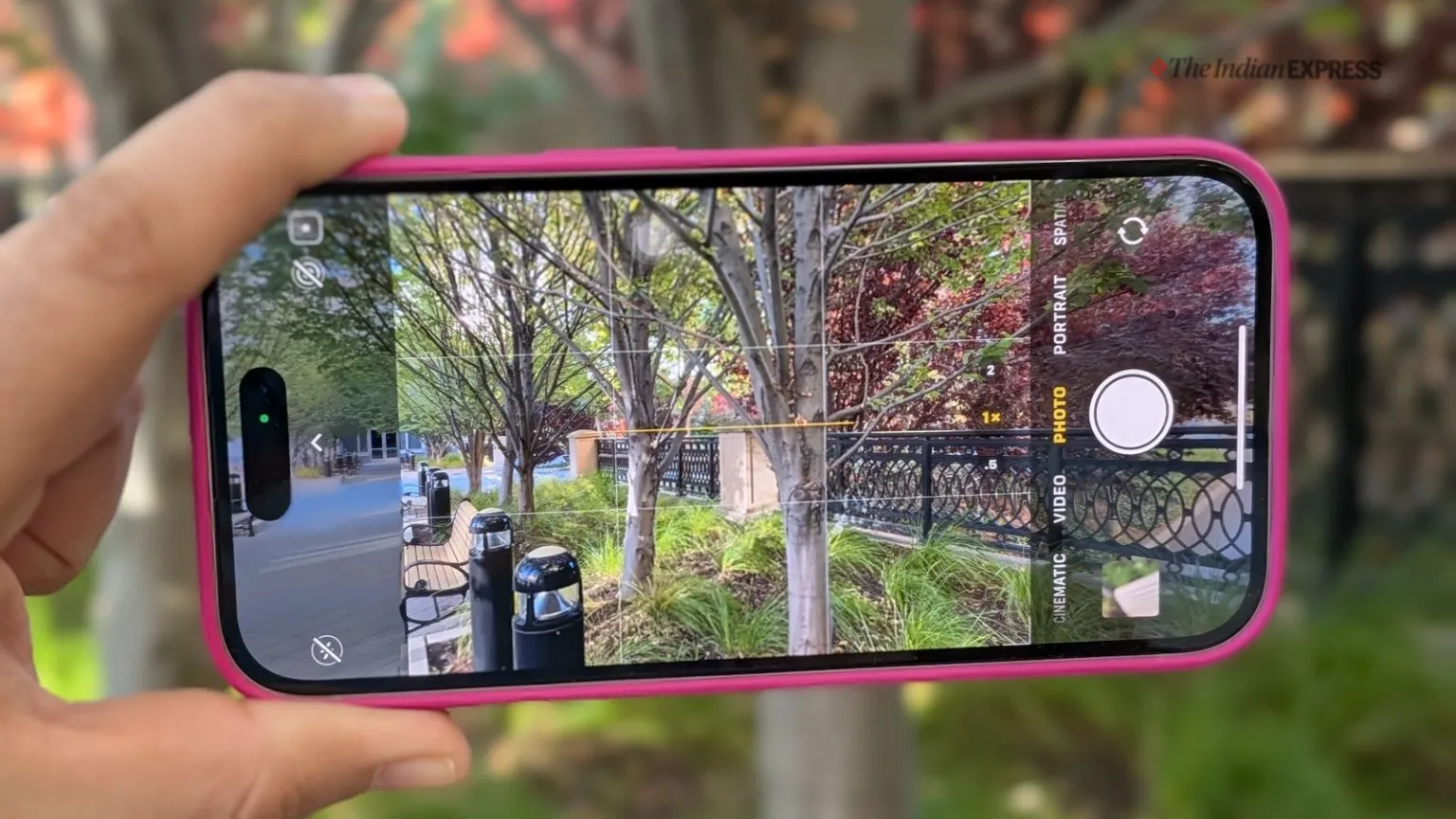Now that both Apple and Google have unveiled their 2024 flagship phones, the iOS vs Android debate has warmed up again. Google seems to be hitting all the right spots with the Pixel 9, but Apple did bring some new changes to the vanilla iPhone 16.
While both devices have a similar design and feel, the underlying hardware and the accompanying software are vastly different. If you are looking to buy a new compact flagship this year, here’s an in-depth guide that will help you decide if you should purchase the Pixel 9 or go with the iPhone 16.

 The iPhone 16 and the Pixel 9 look and feel similar. (Express Photo)
The iPhone 16 and the Pixel 9 look and feel similar. (Express Photo)
Design and display
 Google
Google typically launches new Pixel devices a month after
Apple unveils its latest iPhone models, but this year, the tech giant changed its mind and unveiled the Pixel 9 a month before Apple unveiled the iPhone 16 series.
Story continues below this ad
While the iPhone 16 does look and feel similar to its predecessor, Google’s latest Pixel phone brings a new design. In our review, we found the Pixel 9 is now more curved and has an iPhone-like feel. As for the base iPhone 16, Apple has ported the Action button from the iPhone 15 Pro models and added a new capacitive “Camera Control” button, which lets you quickly fire up the camera and play around with controls like exposure and zoom level.
In terms of build quality, both devices feel premium to hold and have an aluminium frame with a glass back. However, a minor difference between the two is that the iPhone 16 has a matte finish while the Pixel has a glossy back. And even though both phones offer IP68 dust and water resistance, the iPhone 16 is available in far less colours than the Pixel 9.
Coming to the display, the iPhone 16 still has the same 60Hz 6.1-inch OLED screen as its predecessor. On the other hand, the Pixel 9 now has a slightly larger 6.3-inch OLED screen which refreshes at 120Hz, so if you are someone who reads a lot of text, the Pixel 9 might be the way to go.
Performance
While both the iPhone 16 and the Pixel 9 have highly capable chipsets, the iPhone 16, powered by Apple’s newest A18 chipset is way faster than the Pixel 9’s Tensor G4 when it comes to synthetic benchmarks.
Story continues below this ad
If you are a benchmark enthusiast and all you care about are numbers, the iPhone 16’s A18 chipset is somewhere around 40 to 50 per cent faster than its Pixel counterpart. But, despite the Pixel 9’s lower score, it is pretty fast and can easily handle everything you throw at it.
As is the case every year, Apple said at the iPhone 16 launch event that its new phone has “more RAM”, but did not officially share a number. Compared to the Pixel 8, which had only 8GB RAM, the newly launched Pixel 9 comes with 12GB RAM, which the company says should help with AI tasks.
In terms of storage, the base variants of the iPhone 16 and the Pixel 9 have 128GB storage, but if you are are someone who stores a lot of images or videos on your phone, the iPhone 16’s most expensive variant comes with 512GB storage compared to the Pixel 9’s slightly dated 256GB variant.
 The iPhone 16 comes with iOS 18 out of the box. (Express Photo)
The iPhone 16 comes with iOS 18 out of the box. (Express Photo)
Software
The main difference between the iPhone 16 and the Pixel 9 is in terms of software. The latest from Apple comes with iOS 18 out of the box while the Pixel 9 runs on the now-year-old Android 14, which is a bit disappointing since Google’s new Pixel phones usually have the latest Android.
Story continues below this ad
While Apple is yet to roll out its new AI features, the Pixel 9 already has some new AI-powered features like Add Me, Best Take, Audio Magic Eraser and Photo Unblur. In the last few years, the gap between Android and iOS has closed a bit, with both mobile operating systems borrowing some useful features from one another.
The Google Pixel 9 comes with stock Android, which may be bland for some while others find it very intuitive and easy to use. On the other hand, iOS is known for offering solid stability and ease of access, so this is something that entirely depends on your preference. And even though the Pixel series is one of the first Android phones to get new features, Google’s software updates are known to introduce bugs and issues, which is something Apple needs to work on as well as iOS isn’t perfect either.
Apple does not officially specify how long it will offer software updates for the iPhone, but most devices usually get anywhere between five to eight years of software updates. However, Google explicitly stated that the Pixel 9 series will get seven years of OS and security updates, but since it launched with Android 14 out of the box, it will get the same updates as the Pixel 8 series.
 The iPhone 16 has the same dual camera setup as its predecessor. (Express Photo)
The iPhone 16 has the same dual camera setup as its predecessor. (Express Photo)
Camera
The iPhone 16 (review and camera samples) has a 48MP primary camera and a 12MP ultrawide sensor, which is the same as last year. Google also seems to be sticking to its formula, with the Pixel 9 (review and camera samples) featuring a dual camera setup that consists of a 50MP primary sensor and a 48MP ultrawide lens.
Story continues below this ad
In terms of photography, both the iPhone 16 and the Pixel 9 take excellent shots during both day and night time, but the Pixel 9 with its 48MP ultrawide sensor offers a huge advantage if you often find yourself using the wider camera sensor. However since they have different post-processing algorithms, this is purely a matter of personal preference.
As for video, both the iPhone 16 and the Pixel 9 can record videos in 4K at 60fps, but the iPhone 16’s output is slightly better than the Pixel phone, so if you are someone who vlogs or records a ton of videos, the iPhone 16 is the way to go.
Unlike the iPhone 15, which had a squarish camera island, Apple has opted for a vertically arranged pill-shaped camera bump on the iPhone 16, which the company says enables support for Spatial video recording. Google also seems to be changing things, with the Pixel 9 now having a horizontal camera pill bar instead of the camera visor that stretches along the width of the phone on the Pixel 8.
Battery and charging
Apple never officially says how big the battery on the iPhone is, but according to several reports, the iPhone 16 packs a 3,561mAh battery, which might be minuscule by today’s standard. On the other hand, the Pixel 9 has a 4,700mAh battery, which is pretty good since the phone is smaller than the majority of Android devices.
Story continues below this ad
However, Apple claims that the iPhone 16 can easily last you a day, which is true for a light to moderate user. And for those wondering, the Pixel 9 can last you a day even if you play games, watch videos, stream podcasts or surf the web.
Both the iPhone 16 and the Pixel 9 do not come with charging bricks in the box, and have similar charging speeds as well, which are clearly not up to 2024 standards. While most smartphone manufacturers now offer fast charging, the iPhone 16 and the Pixel 9 still need more than an hour to charge from 0 to 100 per cent.
Apple iPhone 16 vs Pixel 9: Which one should you buy?
The iPhone 16 is more of an iterative upgrade over its predecessor, but the Pixel 9 brings several notable upgrades, especially to the camera, design and chipset. While the Tensor G4 may not be as fast as the iPhone 16’s A18 chipset, it no longer heats up and is pretty fast when it comes to multitasking and completing AI-powered tasks. If you are already a part of the Apple ecosystem and have the iPhone 14 or an older device, the iPhone 16 might make sense.
On the other hand, the Pixel 9 with its smart AI features, solid design and capable cameras might appeal to to those who want a phone that will get software updates for years to come and want to enjoy the clean user interface stock Android has to offer.




 The iPhone 16 comes with
The iPhone 16 comes with  The iPhone 16 has the same dual camera setup as its predecessor. (Express Photo)
The iPhone 16 has the same dual camera setup as its predecessor. (Express Photo)





